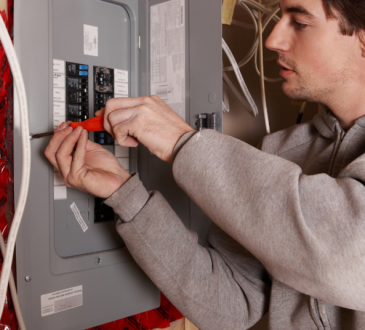
If you’ve decided to install acoustic panels—whether for your office, home, studio, or any other space—you’re already on the right track to creating a quieter, more comfortable environment. But one of the most important decisions you’ll face next is choosing the right supplier.
In Singapore, the market for acoustic panels is growing, and there’s no shortage of companies offering solutions. Still, not all suppliers are created equal. Some focus more on aesthetics, others on performance. Some offer customisation, while others stick to standard products. And of course, pricing, reliability, and customer service can vary widely.
So, how do you make the right choice?
Let’s walk through the key things to consider when picking an acoustic panel supplier in Singapore—so you can make a decision that suits your space, budget, and long-term goals.
1. Product Variety and Specialisation
The first thing to look for is what kind of acoustic panel singapore supplier offers. Are they purely decorative? Are they functional for specific use cases like recording studios, restaurants, or classrooms? Can they provide ceiling panels, wall panels, or even movable partitions?
A good supplier will offer a range of options, including:
- Different panel sizes and thicknesses
- Various finishes and colours
- Specialist materials for different acoustic needs (e.g., fibreglass, foam, fabric-wrapped)
- Fire-rated or moisture-resistant options (especially important in humid environments like Singapore)
Look for a supplier who doesn’t just sell one or two basic products, but can tailor their offerings to your needs.
2. Understanding of Acoustic Performance
While acoustic panels can look stylish, their real value lies in how well they control sound. A quality supplier should have a strong understanding of sound absorption coefficients, reverberation control, and how to place panels for optimal results.
It’s a bonus if the supplier offers:
- On-site assessments
- Acoustic modelling or simulations
- Sound test data or technical specs
If a company can explain the science behind their products in a simple, approachable way and back it up with numbers, you’ll feel much more confident in their recommendations.
3. Customisation Options
Every space is different, and a one-size-fits-all solution rarely delivers the best outcome. Ask whether the supplier offers custom sizes, colours, and finishes.
This is especially important if you have:
- A specific interior design theme
- Unusual ceiling or wall dimensions
- Branding elements to match
- Particular functional needs (e.g., extra-thick panels for industrial noise)
Some suppliers even offer customised acoustic panels that double as artwork or pinboards, combining practicality with personality. So don’t settle for generic if custom options are available.
4. Installation Support and Expertise
Another big consideration is whether the supplier offers professional installation, and how experienced they are in doing so. A high-quality panel installed incorrectly won’t give you the results you’re hoping for.
Ask about:
- In-house installation teams or vetted partners
- Mounting options (e.g., direct to wall, ceiling-suspended, track-mounted)
- Installation lead times and flexibility
- Post-installation support
In some cases, acoustic panels are part of larger renovations or design updates, so having a supplier who can coordinate with other contractors or adapt to scheduling changes is a real advantage.
5. Reputation and Track Record
What do other clients say about them? How long have they been in business? Do they work with reputable brands or institutions?
Spend a little time checking:
- Google reviews or testimonials
- Past project galleries
- Case studies
- Client lists (especially those in similar industries to yours)
A supplier with a solid track record is more likely to offer consistent quality, handle challenges professionally, and guide you smoothly through the buying process.
6. After-Sales Service and Warranty
Acoustic panels are a long-term investment. Make sure your supplier offers reliable after-sales support. This might include:
- Product warranties
- Maintenance advice
- Panel repairs or replacements
- Follow-up site visits if needed
Good suppliers care about how their products perform after installation, not just before the sale.
7. Transparency on Pricing and Lead Times
Lastly, don’t forget the basics. Your supplier should be able to provide clear pricing, estimated lead times, and transparent terms, without hidden fees or vague commitments.
Things to ask:
- Do quotes include installation?
- Are there discounts for bulk orders?
- What’s the typical lead time for delivery or customisation?
- What happens if there’s a delay or defect?
Clarity at this stage prevents misunderstandings later and helps keep your project on time and on budget.
Bonus Tip: Ask for Samples
If you’re unsure about a particular material or finish, ask for a sample panel. Many reputable suppliers will be happy to provide one so you can get a feel for the texture, look, and weight before committing to a full order.
This simple step can give you more confidence and help avoid regrets.
Final Thoughts
Choosing the right acoustic panel supplier in Singapore isn’t just about picking a product from a catalogue—it’s about finding a partner who understands your space, your goals, and the science behind sound.
Take your time to compare options, ask questions, and look beyond just price. A supplier who offers expert advice, customisation, strong support, and real results is worth the investment.
After all, good acoustics don’t just happen. They’re carefully planned, and choosing the right supplier is the first step in getting it right.




